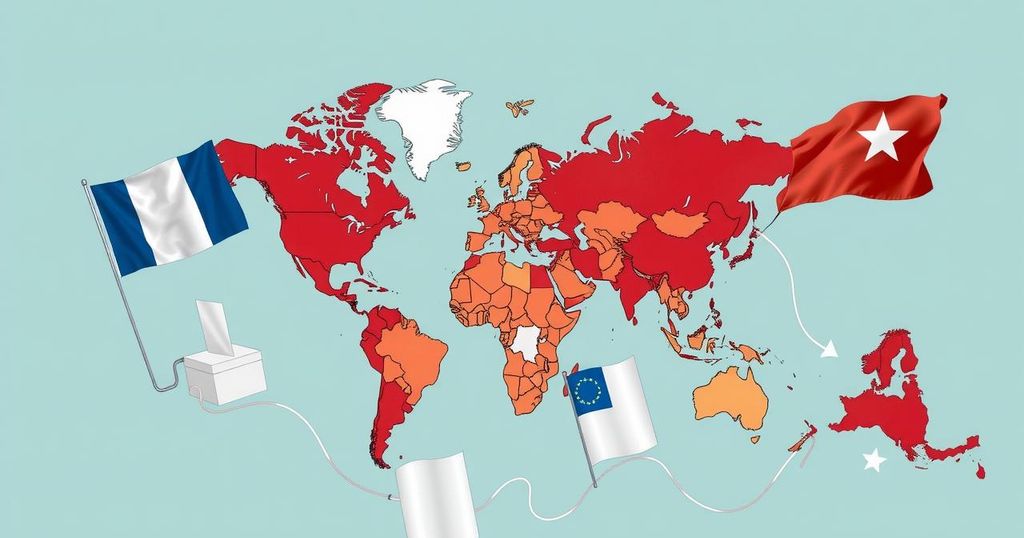Global Elections 2024: A Turbulent Year for Incumbents and Democracy
In 2024, a wave of elections saw global incumbents facing severe backlash, with many voters expressing their frustration through significant electoral shifts. Contributing factors included long-lasting economic issues and geopolitical tensions, leading to surprising political upsets across a multitude of nations. As traditional parties lost ground, an emergent sentiment favoring populism and right-wing movements gained traction, posing questions about the future of democracy.
In the year 2024, electoral processes were profoundly disrupted with incumbent leaders facing significant backlash from the electorate across roughly 70 nations, which represent half of the global population. The dissatisfaction stemmed from enduring economic instability and societal transformations linked to the ongoing repercussions of the COVID-19 pandemic, high inflation rates, and geopolitical conflicts, most notably intensified by Russia’s actions in Ukraine. These forces conspired to engender a mood of disillusionment that culminated in a pronounced shift in political power, often favoring outsiders and populist parties.
Countries such as India and South Africa witnessed dramatic electoral reversals, while numerous others experienced mass protests and political unrest. Key losses for established parties were noted worldwide, exemplified by the African National Congress in South Africa and Prime Minister Narendra Modi’s Bharatiya Janata Party in India. Political analysts suggest these outcomes reflect not only frustration towards incumbents but also a broader crisis of confidence in democratic institutions themselves, with many populations yearning for effective governance amid persistent challenges.
The political landscape throughout 2024 exhibited notable turbulence, characterized by a series of elections across various nations where incumbent officials were routinely ousted. This came against a backdrop of lingering post-pandemic grievances, including significant economic stressors and sociopolitical upheaval in many regions, leading to a widespread rejection of established political entities. The intricate interplay of these factors underscored a global trend of anti-incumbent sentiment, prompting voters to seek alternatives that promised change, often resulting in the elevation of radical or populist candidates to power.
The electoral upheaval of 2024 serves as an indicator of the growing impatience among voters concerning the performance of long-standing political establishments. As many incumbents fell amid the backlash against economic and social dissatisfaction, the emergence of right-wing and populist movements has raised questions regarding the future trajectory of democracy worldwide. The data suggests that while the theoretical support for democratic governance remains strong, real-life experiences have not met public expectations, creating a growing divide between the ideal of democracy and its practical implementation.
Original Source: www.clickorlando.com




Post Comment